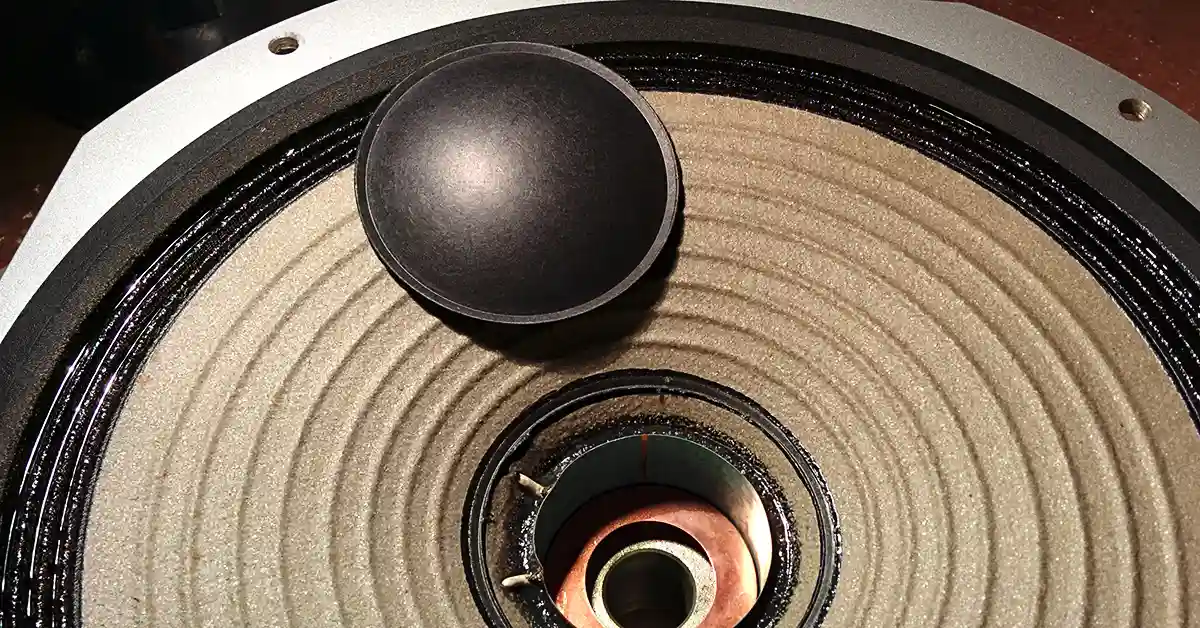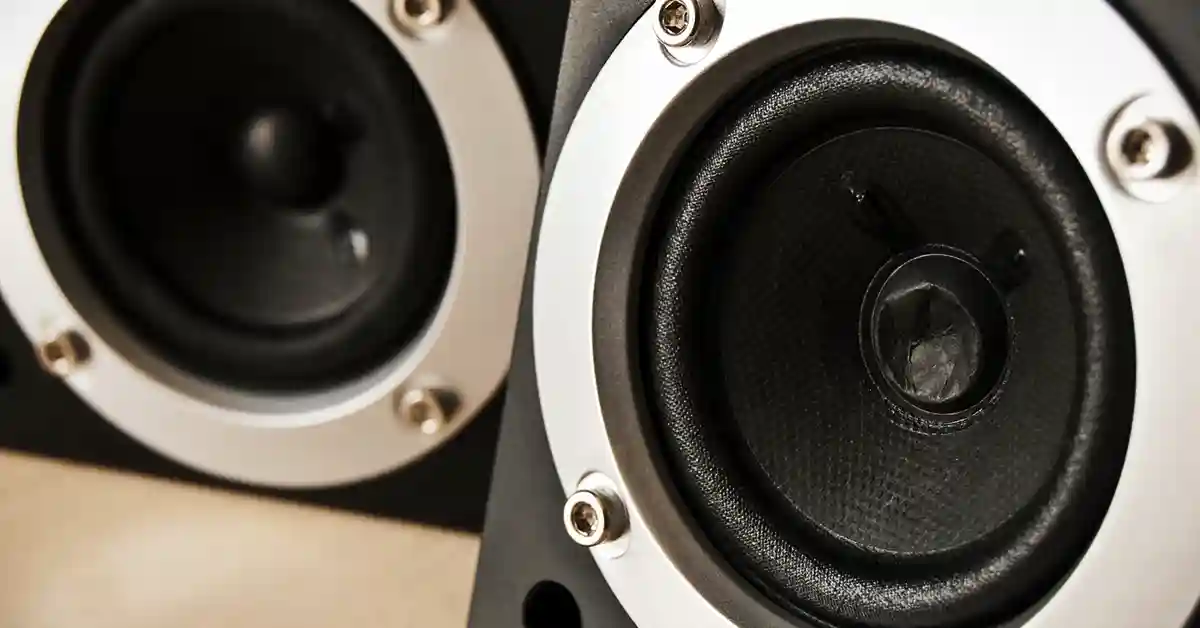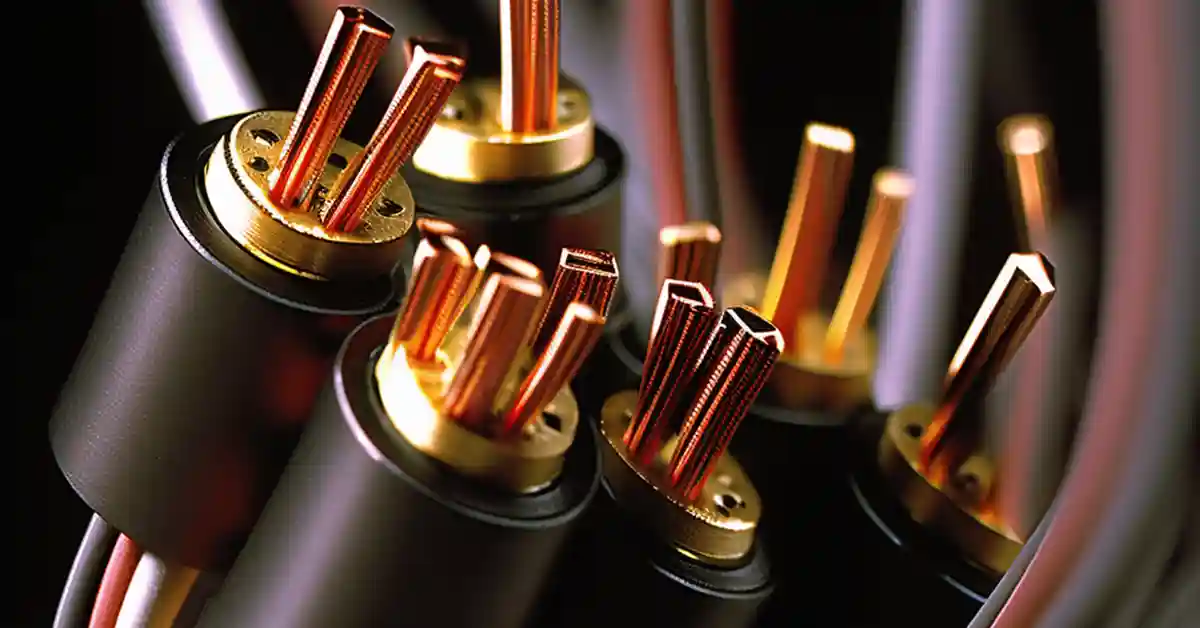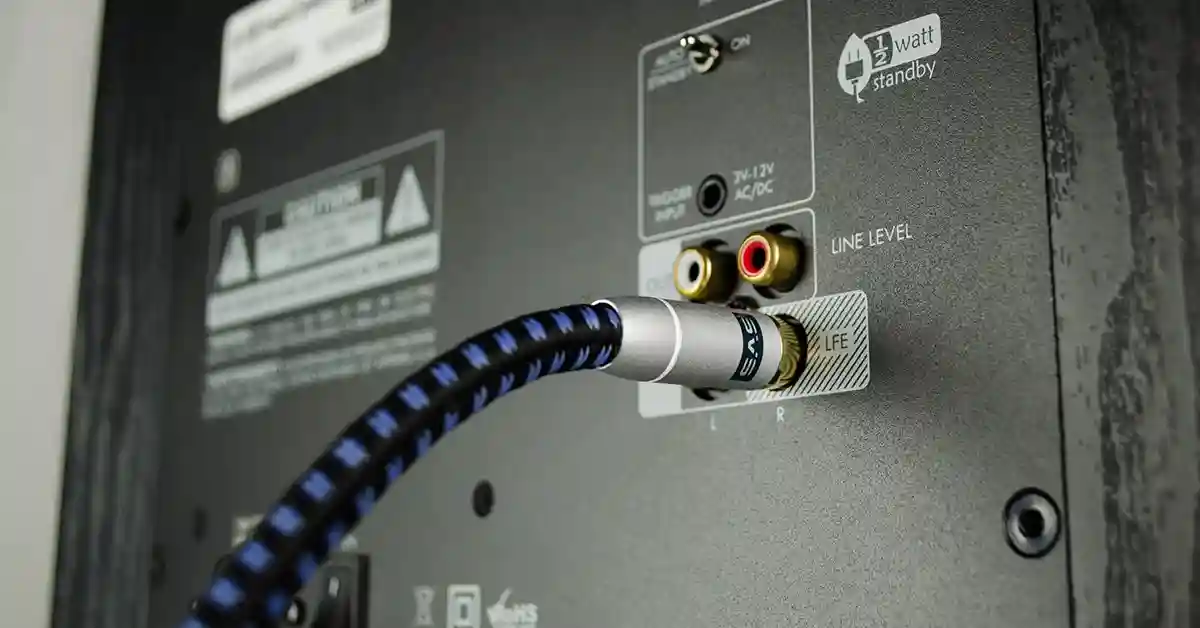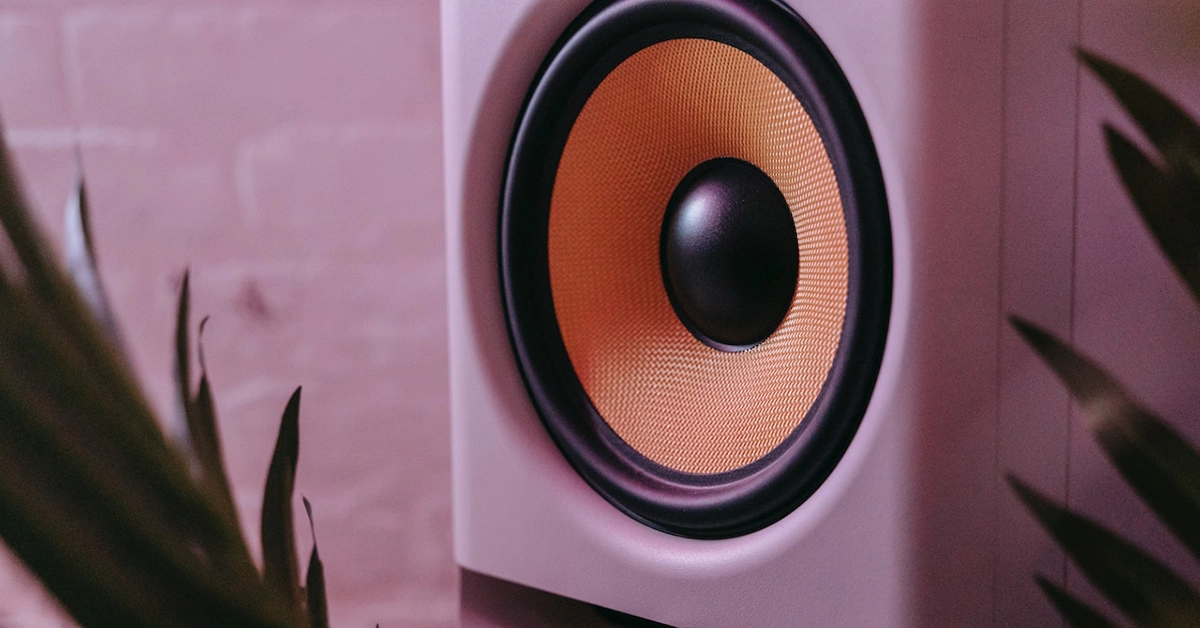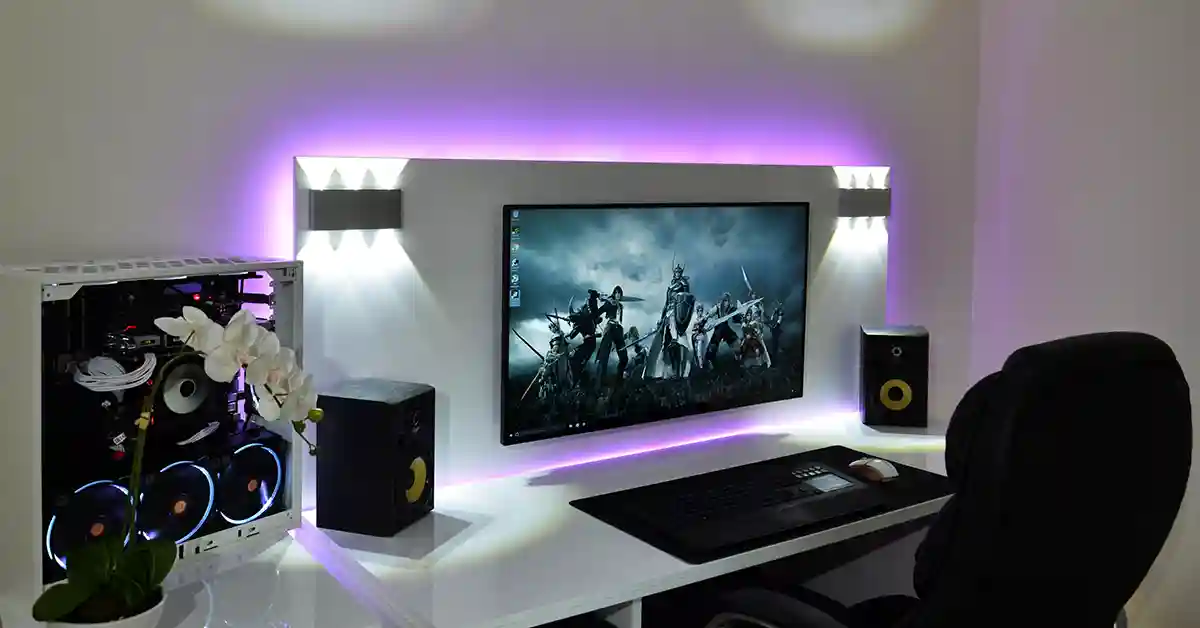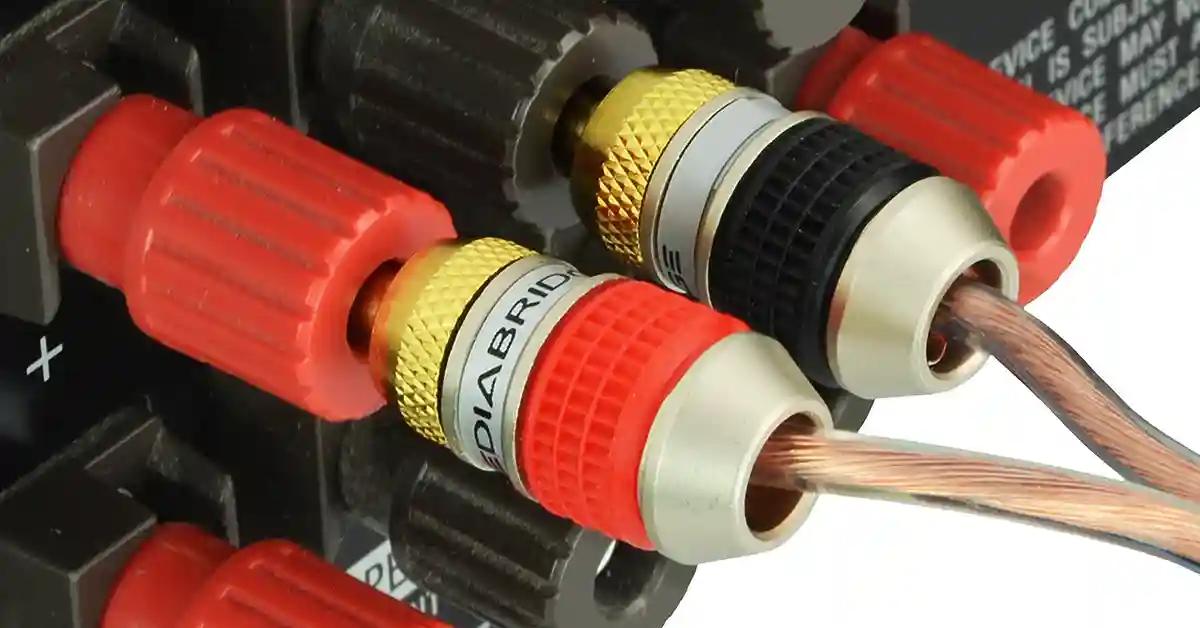Speaker Watts: How Many Watts Is Good For Speakers?
Speaker wattage is one of those topics that can leave you scratching your head and wondering if those numbers written on their back really do matter. If so, how many watts is a good speaker? That's the million-dollar question.
Sure, everyone wants to obtain a booming sound from their speakers, but it all depends on the room size, speaker efficiency/sensitivity, and even your music preferences.
Today we'll stroll through the world of audio engineering – decoding this mysterious topic so that you know to craft an unforgettable listening experience.
Let's explore exactly what goes into finding those perfect wattages!
How Many Watts Is Good For Speakers
If you want to know how many watts is a good speaker, here's a quick answer for you:
For a medium-sized room, 30 to 50 watts is sufficient to fill it with sound. If you're looking for a louder sound to fill a large room, 50 to 100 watts is ideal. For an even more powerful sound that can reach multiple rooms in a house, 200 or more watts is what you should aim for.
Remember, when learning what is a good wattage for speakers, always consider the size of your room and how loud you want the sound to be. More watts means more power and more audible sound - just don't overdo it as too much power can damage your speaker system.
Best Watts For Speakers
The average speaker is about 50-60 watts, but the best range lies between 20-35 for regular use. That being said, good speaker wattage depends on your room, how loud you want the sound, and what kind of music you're playing.
As for is more watts better for speakers, yes, that's true. Higher-wattage speakers produce cleaner sound, and less distortion. But the main thing to remember is that the higher the wattage, the more expensive the speaker will be. So, if you're on a budget, start with a lower wattage and see how that works for you. You can always upgrade later!
How Many Watts Do I Need For My Speakers
If you often wonder how many watts speakers do I need, think between 20-100 watts for impressive sound quality and louder volumes. On average, most people will need anywhere from 20 to 100 watts per speaker for uninterrupted sound experience, but this can vary depending on the room size. To get a more precise estimate of how many watts does a speaker use, it's helpful to use an online calculator that takes into account all of these factors.
To know what wattage speakers do I need, consult a professional audio technician who can provide personalised advice based on your specific needs. Depending on your budget and preferences, they may even be able to recommend specific speakers that would suit your needs.
You also need to consider the type of sound you'll prefer when determining 'how many watts speaker do I need'. Lower-wattage speakers are great for low-volume listening, such as background music in an office or retail setting.
For example, if you want to listen to music at loud volumes or host dance parties, getting a higher-wattage speaker is smarter than if you were just playing background music in a restaurant.
Ultimately, how many watt speakers do I need will depend on how much sound you would like your system to produce and where you will use it. The best way to determine how many watts do I need in a speaker is by testing them out in person or talking with an experienced audio professional who can help guide your decision based on your specific needs and budget.
Always check the manufacturer's specifications so that you are purchasing a powerful enough speaker for your desired application. If in doubt about 'how many watts do my speakers need', err on the side of caution and go with higher wattage speakers rather than lower ones!
How To Measure Speaker Wattage?
The wattage of a speaker is the amount of power it can handle, usually written on the back of the speaker, or on the underside of its base. To measure the wattage, follow these steps:
● First, you'll need to use an AC power metre and connect it to your speaker.
● Next, turn up the volume until it reaches the maximum level your speaker can handle without distortion or damage.
● Take note of the reading on your power metre, and this will give you an accurate measurement of the wattage.
Note that all speakers have varying wattages; measuring them is good. For example, a speaker designed for home use may have a lower wattage (mostly 20 to 50 watts) than one designed for commercial use (100 to 200 watts).
Speaker Wattage For Room Size
How many watts for a living room or room is a common question people have while eyeing a new sound system. To make this easier for you, here's a quick breakdown of the standard speaker wattage for room size:
● Small room (less than 100 square feet): 20-40 watts
● Medium room (100-200 square feet): 50-80 watts
● Large room (more than 200 square feet): 80-100 watts or more
As we explained earlier, to find the right wattage for your space, consider how loud you want your music to be. If you plan to listen at low levels, 50 watts should suffice.
Also, note that different types of speakers require different amounts of power. For example, if you're using powered speakers with built-in amplifiers, they will generally require less wattage than traditional passive speakers.
What Is Watts In Speakers?
In audio systems, Watts (or wattage) refers to the amount of power or energy that is being generated and used by the speakers. This power is measured in units of electricity called watts (abbreviated as W). Discovered by a Scottish scientist, James Watts, in 1776 for his steam engine, watt was a fundamental revolution. The higher the speaker wattage, the more powerful it'll be. This means that speakers with higher wattages are able to produce louder sounds than those with lower wattages.
Watts On Speakers
Speaker watts are the most important to consider when buying a sound system. But what exactly does wattage in speakers mean, and how do you know how many watts your speakers need?
Let's find out:
Wattage In Speakers
Speaker watts meaning is a measure of power, and it's used in audio equipment to describe how much power a speaker can handle. Speaker watts indicate how loud it can play and how much bass response it can provide. Typically, the higher the wattage for speakers, the more powerful the sound will be. That being said, don't assume that higher speakers watts always mean better quality—it's important to look at other factors like sensitivity rating.
It's best to have a system that at least provides a speaker watt of 20 per channel (or 40 watts for a 2-channel system). This should provide enough power for most listening situations.
Is Higher Watts Better For Speakers?
Usually, higher-wattage speakers typically produce louder and better sound quality than those with lower wattage. That said, the wattage of a speaker should be viewed in comparison to other audio system elements, such as the type of amplifier used and the size of the speaker cones.
A larger wattage does not always guarantee better sound; it ultimately depends on how well the amplifier can translate and deliver power to the speaker cones. If your speaker system is too powerful for your room or space, then that could lead to distortion or "muddiness" of sound due to uneven coverage of frequency ranges.
Do Watts Matter In Speakers
Watts matter in speakers because they indicate how much power or energy is being generated and used. High watt speakers have more power, usually leading to louder sound. However, different wattage speakers should be considered in relation to other audio systems elements such as amplifier type and cone size of the speaker because those also impact how loud and clear the sound is.
Speaker Watts Calculator
To use a speaker watts calculator, start by gathering information about your speaker systems, such as amplifier type, cone size of each speaker, and the distance between speakers. Then plug in this information into the calculator to get an estimate of the number of watts required for your system. Many calculators also provide information on ideal wattage for different room sizes and sound quality levels, which can be very useful when selecting speakers with higher wattage.
What Is A Good Wattage For Outdoor Speakers?
Generally, it is a good idea to choose a speaker with at least 40 watts of power for each speaker for optimal sound performance. To achieve higher sound quality and louder volume, get speakers with up to 100 watts of power - remember, the more powerful your speakers are, the higher wattage they require. Also, using an amplifier along with your speaker system can help increase the wattage without having to sacrifice sound clarity or volume.
How Many Watts Speaker Is Good For Home?
A good rule of thumb is to expect about 20 watts for each square foot of space. For general listening in a large room, something that can produce at least 80 watts RMS (root mean square) will do.
Computer Speakers Wattage: What Is Best?
You should expect at least 20 watts in a computer speaker. Some computer speakers are designed to produce very efficient sound with only small amounts of power, so check the specification labels carefully.
For high-quality audio, look for speakers with higher wattages and larger drivers (the components responsible for producing sound). Most modern speakers feature integrated amplifiers, which can range from 20-200 watts, depending on the model.
How Many Watts Is Good For Car Speakers?
Most cars are designed to run between 10-50 watts per channel (speaker) at peak power or RMS. For some people, a higher wattage is desired for maximum volume levels, but this may increase the risk of blowing out the speakers.
It's important to remember that car audio is measured in decibels (dB), not watts. A speaker with higher wattage will be louder than one with lower wattage. However, if the dB rating is the same, it doesn't matter how many watts your system has.
How Many Watts Is Good For A Party Speaker?
Experienced DJs and home entertainment enthusiasts recommend anywhere between 50-300 watts per channel. This ensures the sound is clear and powerful enough to fill a medium-sized room or backyard.
For the ultimate sound quality, investing in high-wattage speakers (400W+ per channel) can be worthwhile. This will provide unparalleled sound quality and eliminate the need for multiple speakers - something budget-smart event planners will appreciate.
How Many Watts Is Good For Bluetooth Speakers?
Like other speaker models, Bluetooth speakers' wattage will also vary according to the place it'll be used in. Here's a quick answer to how many watts is a good Bluetooth speaker:
● For smaller spaces, such as a bedroom or office, you will likely only need 10-30 watts per channel.
● Medium-sized rooms may require slightly more power; in this case, 50-100 watts per channel would be sufficient for most cases.
● For larger venues requiring a lot of sound reinforcement, 200-400+ watts of combined power should suffice.
Speakers By Wattage Size
If you want to measure a speaker you're eyeing (or already have) on a scale to know how loud it'll be, we got you. Here's a run-down of different speaker wattages and their sound levels:
3 Watts
A 3 watt speaker is a low-powered device and will provide sound at a level comparable to a small radio. A 3 watt speaker how loud is a common query we get, but know that the sound it produces is not loud enough for larger gatherings or rooms with higher ceilings.
But it can provide some ambience as it won't overpower conversations, but it will fill the room with an audible sound. We hope you're now sure how loud is a 3 watt speaker!
10 Watts
Next up, how loud is a 10 watt speaker? Here's the answer:
The power output of a 10 watt speaker is loud enough to fill most rooms but not loud enough to disturb the peace. In a quieter environment, such as an apartment or office, 10 watts will sound medium-sized and louder than background noise, while in larger spaces, such as a concert hall or warehouse, it will sound quieter. How loud is 10 watts speakers will also depend on their quality. So, is 10 watts loud? Yes, but not so much.
20 Watts
20 watts of power in a speaker can provide plenty of volume for most small to medium spaces. However, it is important to consider the type of speaker and its environment when determining is 20 watts loud. Depending on the size, shape, and acoustics of the room, 20 watts may not be loud enough to fill the space. More modern speakers with higher sensitivity will produce more power with less actual wattage than older models.
30 Watts
A 30 watts speaker can get quite loud, depending on the size of your room and other factors like reverberation and bass notes. Generally speaking, you can expect a 30 watts speaker to provide overall sound levels in the range of 85-90dB, which is plenty for most applications. That said, how loud is a 30 watt speaker will, again, depend on its quality and the settings you use it for. How loud is 30 watts in a room? Quite a lot. How loud is it in an outdoor space? Not much.
50 Watts
Don't know how loud is a 50 watt speaker or is 50 watts loud enough for a party? No sweat, as it can produce sound loud enough to fill a larger room. Such a speaker won't be as loud as a concert or a karaoke bar, but it will still be loud enough for most home listening needs. Generally speaking, the answer to is 50 watts per channel enough or is 50 watts loud to fill up a big room is positive. With it, you won't need to turn the volume up too loudly to hear properly. Got the answer to how loud is 50 watts? Cool!
80 Watts
Yes, an 80 watt speaker can be quite loud. Is 80 watts loud enough will depend on the room's acoustics or environment. Even with just 80 watts of power, a large speaker can produce very loud volumes.
100 Watts
A 100 watt speaker is capable of producing a powerful sound. Generally, a 100 watt speaker can generate sounds that range from very loud to moderately loud, depending on the above-mentioned factors.
For reference of how loud is a 100 watt speaker, a normal conversation occurs at around 50-60 decibels and an ambulance at around 120 decibels, while a 100 watt speaker can produce up to 95 decibels -- louder than most standard music venues. To put it simply, a 100 watt speaker can be loud enough to fill small and medium spaces with sound, but probably won't be suitable for large outdoor settings.
800 Watts
Is 800 watts loud in a speaker shouldn't be a question because it truly is. 800 Watts is a great amount of power for a speaker and can generate enough volume to fill large venues. Depending on the size of the speaker, it can produce sounds ranging from moderately loud to very loud. It is important to note that playing music at high volume can cause damage to hearing over an extended period, so caution should be taken when using powerful speakers like this one.
1000 Watts
A 1000 watt speaker can be incredibly loud and is suitable for large events. For example, a professional sound system using a 1000 watt speaker can reach up to 120dB at 1 metre away from the source. This is enough to damage hearing with prolonged exposure and may require the use of earplugs or soundproofing in venues. How loud is a 1000 watt speaker will vary according to its placement and surrounding environment.
Conclusion
To summarise, how many watts is good for speakers is determined by the type of amplifier, room acoustics, and personal preference.
If you're unsure how many watts per speaker will yield the best sound quality, research your amplifier and how many distinctively different levels of sound it can produce. Also, take into account how much power the room you'll be listening in can hold and how many sound sources are available.
Each watt increase will make an incremental difference in the outputted sound quality. That's why knowing how far you want to go before purchasing your audio system will likely result in a more enjoyable listening experience. Good luck with your quest!
Related Articles

